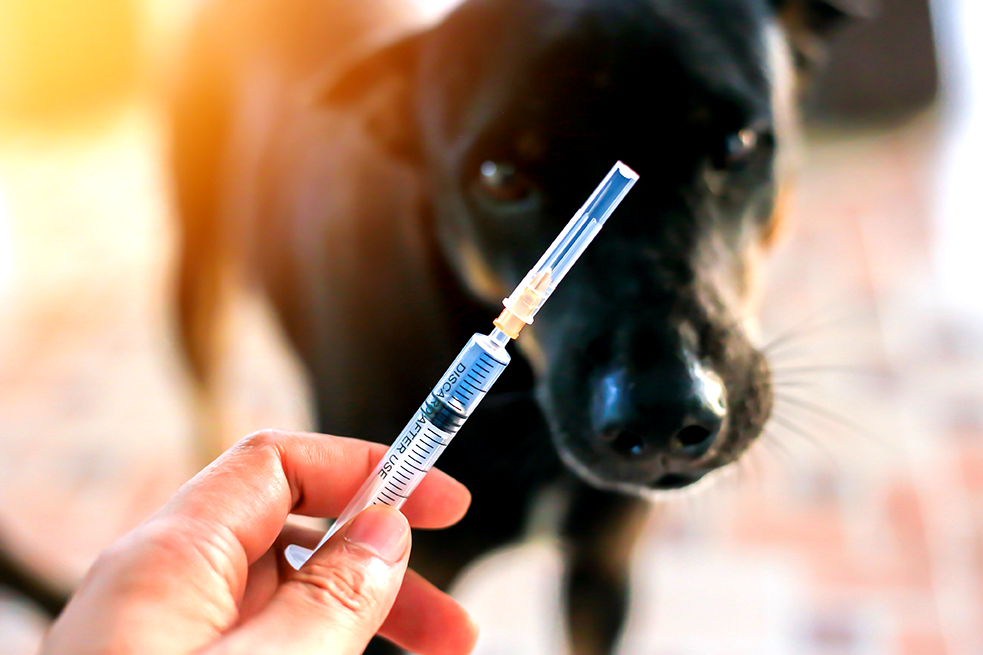There’s been a lot of buzz lately about Librela, a medication designed to manage arthritis pain in dogs, and much of it centers around its side effects. As a veterinarian, I want to shed light on this topic by sharing my experiences, addressing these concerns, and offering some guidance for pet owners. Let’s dive in.
The Side Effects and Recent Label Update
Librela, like any medication, comes with potential side effects. According to the label, the most common ones include injection site reactions (think pain, swelling, or redness), as well as vomiting, diarrhea, and decreased appetite. Recently, in June 2024, Zoetis, the maker of Librela, updated the warning label to include a note about the risk of rapidly progressive osteoarthritis (RPOA) in dogs. This means your dog can go from mild to severe arthritis over the course of a few weeks to months. Instead of the years in the normal arthritic dog.
My Experience with Librela
I’ve been using Librela since it was first released, and as a rehabilitation vet, I’ve prescribed it a lot. Pain management is a daily part of my work—every one of my patients deals with it in some way. For many dogs with arthritis, Librela has been a game-changer, helping them move more comfortably and enjoy life again. I’ve even used the cat version for my own cat, who has arthritis, and it’s worked really well for her too. When prescribed to the right dog, it’s an incredible tool.
The Key: Picking the Right Candidates
Here’s where I think the real issue lies—not with Librela itself, but with the dogs it’s given to. This medication is meant for healthy dogs with only arthritis pain. Unfortunately, some dogs who aren’t good candidates are being put on it, and that’s where problems start. During a consult my dog patients, I spend up to an hour and a half feeling every joint, muscle, and I have time to dig deep into their health history. General practice vets often don’t have that luxury, with average vets limiting their exams to 15 minutes. In those 15 minutes they have to go over all of your dogs health conditions, history, do a full physical exam which includes an in-depth neurologic and orthopedic exams. That is really hard and subtle sign of pain and neurologic issues are likely to be missed and underlying issues can slip through the cracks.
I’m especially careful to screen for neurological conditions like seizures or canine cognitivedysfunction (CCD). Dogs with these issues might have a more permeable blood-brain barrier, meaning Librela could cross into their nervous system and cause damage. Signs of CCD include pacing at night, seeming a bit more confused, or losing house training. If a pet parent mentions any of these, I won’t prescribe Librela—it’s just not worth the risk. I’d urge anyone whose dog has neurologic issues to have a very serious talk with their vet before starting this medication.
A Tough Lesson from a Border Collie
I’ve seen the fallout of Librela firsthand. One of my patients, a handsome 12-year-old border collie, was on Librela and Rimadyl for arthritis. I saw him every other week, and within two months, his ankle joints nearly doubled in size due to rapid bone growth. A top surgeon diagnosed it as rapid progression of arthritis. His mom was devastated, and I reported this adverse event to Zoetis. It happened so fast, and it’s a reminder of how careful we need to be.
What the Research Says
A recent study, “Musculoskeletal adverse events in dogs receiving … Librela”, dug into these risks. It found that dogs on Librela had a higher rate of musculoskeletal issues—like fractures and joint problems—compared to dogs on other arthritis meds. The study flagged 18 safety signals, including neurological and urinary issues, and called for more research and close monitoring. It’s a wake-up call that we can’t ignore.
Wrapping It Up
Librela can be a fantastic option for managing arthritis pain in the right dogs, but it’s not a one-size-fits-all solution. Picking the right candidates is critical, and pet owners should talk openly with their vets about the benefits versus the risks. If your dog’s a fit, it could mean a happier, more active life—but if not, there are other paths to explore.


